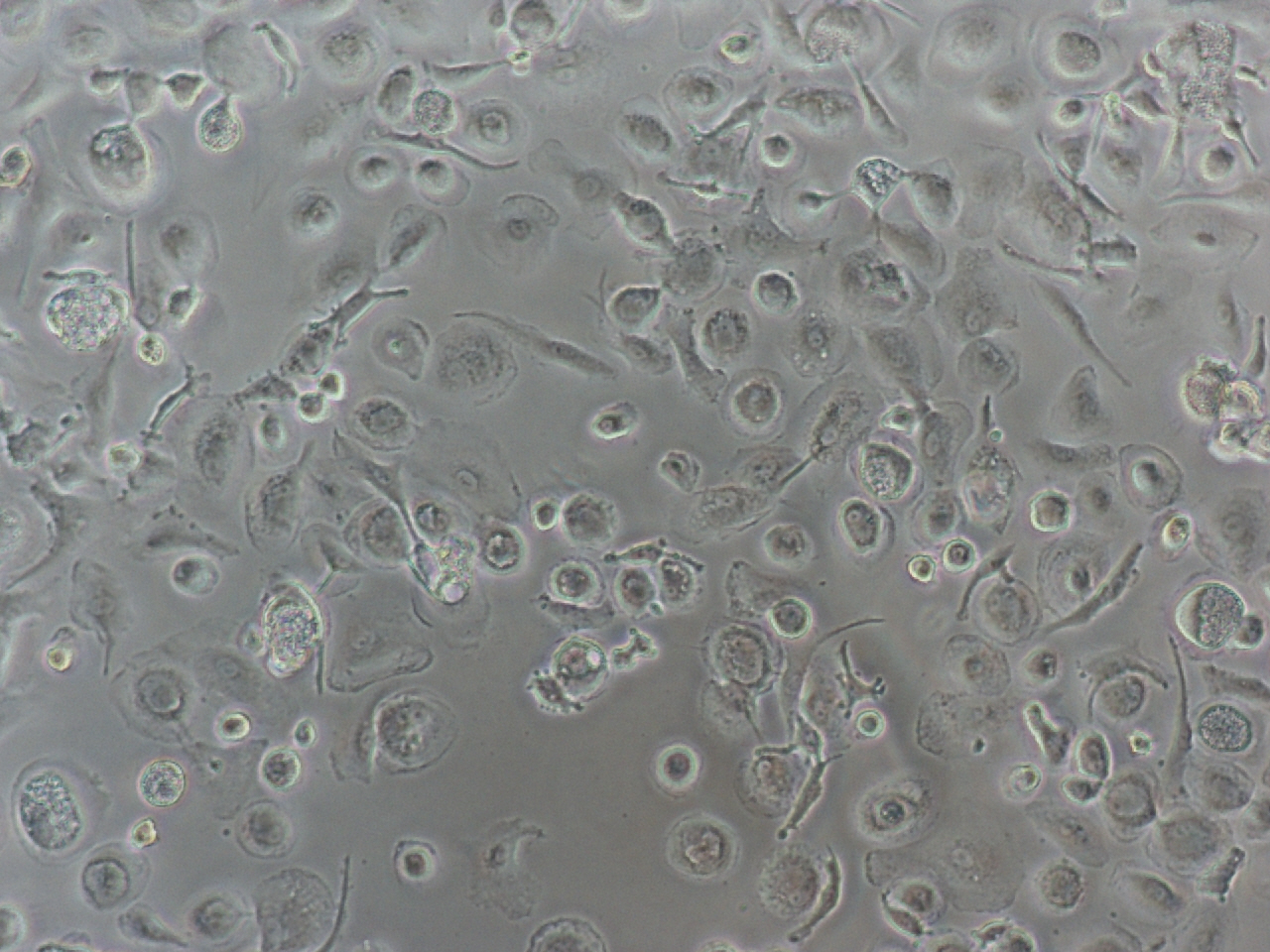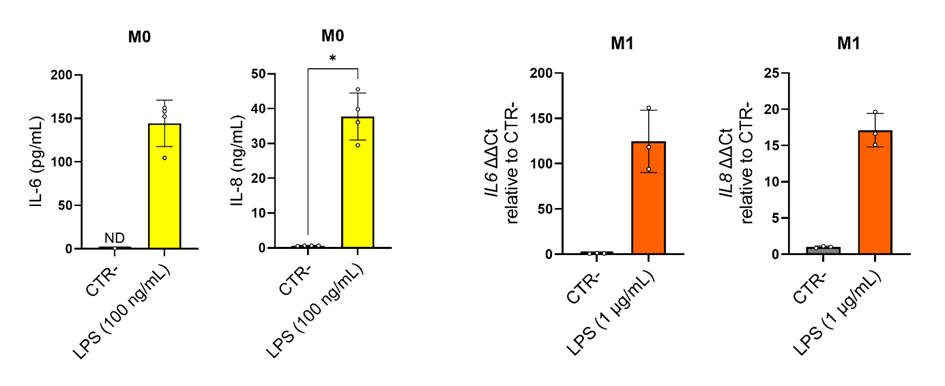
Atlantic Bone Screen offers specialized in vitro assays to evaluate the anti or pro-inflammatory potential of drug candidates using human macrophages derived from monocytes.
These assays employ two distinct experimental approaches: pro-inflammatory or anti-inflammtory effect assessment.
Pro-inflammatory effect assessment:
Test compounds are applied to resting macrophages (unstimulated state) to detect induction of inflammation.
Anti-inflammatory effect assessment:
Macrophages are first activated with LPS or IL-1β to simulate an inflammatory state, after which test compounds are administered to measure suppression of inflammation.
Key features of the assays include:
- At least 24-hour treatment duration for compound exposure.
- Dose-response analysis to determine potency gradients.
- Quantitative measurement of biomarkers levels in cell culture supernatants via ELISA or at cellular level by gene expression analysis
This platform enables the characterization of compound effects on macrophage polarization states, supporting preclinical drug development for inflammatory conditions

Effect of LPS stimulation on M0 and M1 macrophages : Primary human monocytes were allowed to polarize into either M0 or M1 macrophages before treatment with LPS at different concentrations and exposure times. M0 graphs show the quantification of IL-6 (A) and IL-8 (B) in cell culture supernatants after 24 hours of stimulation with 100ng/mL of LPS; ND stands for not determined. M1 graphs report the gene expression of IL-6 (C) and IL-8 (D) of cells treated for 72 hours with 1µg/mL of LPS. These results are presented as fold change relative to the negative control (CTR-). Results are presented as mean ±SD. Statistical difference against CTR- was evaluated by Mann-Whitney test, *: p<0.05.